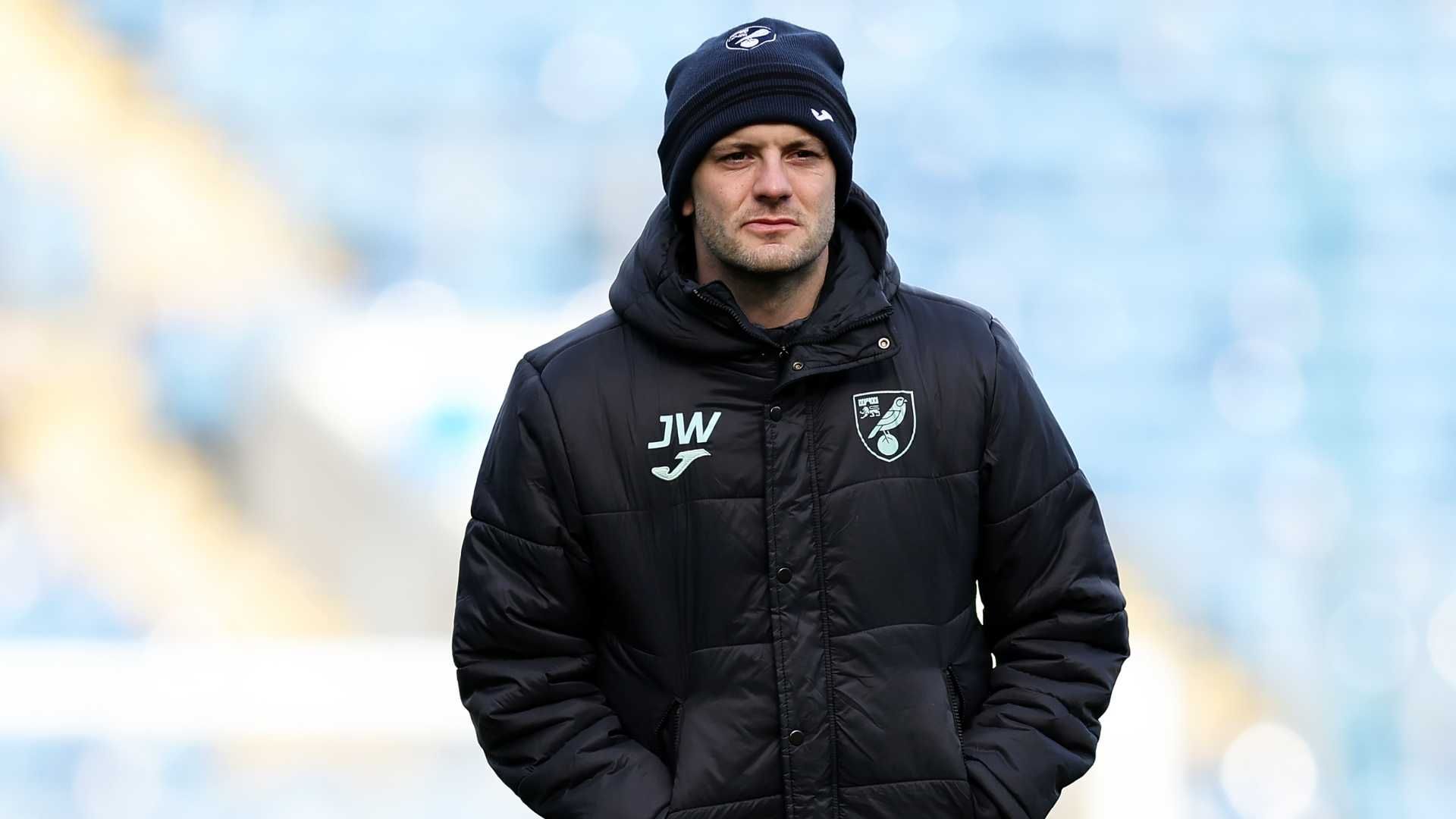


From Arsenal Icon to League One Helm: Jack Wilshere’s Ambitious Coaching Debut
In a thrilling shift for soccer fans, the former Arsenal midfielder Jack Wilshere has claimed his first permanent head coaching job, taking charge of a League One outfit in need of a revival. Building on his short-term guidance at Norwich City, where he steadied the team post-manager departure at the end of the 2024-25 season before another appointee was chosen, this move signals a pivotal moment in his evolving path.
Wilshere’s Initial Foray into Coaching and Professional Evolution
Wilshere began his coaching tenure in Arsenal’s youth setup, guiding the under-18 group and mentoring rising stars like Ethan Nwaneri and Myles Lewis-Skelly. His progression led him to Norwich as a deputy to the main coach, and following that leader’s exit, expectations grew for Wilshere to helm Arsenal’s under-21 team this season.
Surprising Paths to First-Team Leadership
Although an opening in Arsenal’s youth ranks didn’t come through for him, this setback pushed Wilshere toward opportunities in senior-level football. His perseverance paid off with his recent naming as Luton’s head coach, a major leap in his rapidly developing professional journey.
How Luton is Gambling on an Up-and-Coming Tactician
Luton’s selection highlights a calculated risk, as the side sits at 11th in League One and is determined to push for elevation. Just two years ago, Luton surprised many by competing in the Premier League, delivering a valiant performance during their infrequent top-flight campaign. Now, in the third division, the team is concentrating on strengthening its foundation and restoring momentum.
Shifting from Previous Highs to Ongoing Changes
Under Rob Edwards, Luton reached its high point with Premier League qualification, but his departure triggered upheaval. His successor, Bloomfield, couldn’t stem the decline, paving the way for Wilshere. The club now relies on his cutting-edge ideas and modern approaches to spark a recovery.
Managing Expectations with His Illustrious Background
Wilshere is stepping into high-stakes scrutiny, yet his comfort with intense settings is clear. As a teenage sensation at Arsenal, he broke through at 16 and famously outmaneuvered Barcelona’s midfield legends-Xavi, Sergio Busquets, and Andres Iniesta-in a memorable Champions League clash at the Emirates, cementing his reputation as a premier English talent.
Obstacles During His Professional Playing Tenure
Injuries repeatedly hindered Wilshere’s playing career. He retired at 30 after stints with teams including Bolton, Bournemouth, West Ham, and Aarhus in Denmark, boasting 197 outings for Arsenal and 34 caps for England.
The Emergence of Dynamic Young Coaches in League One
Wilshere’s recruitment fits into a growing pattern in League One, with clubs favoring innovative and driven individuals. A standout case is Kieran McKenna at Ipswich Town, who propelled his team from League One to the Premier League in just two years. Luton hopes Wilshere will blend his high-level background with an energetic, attacking philosophy.
Upcoming Challenges and Organizational Backing
Luton’s management is fully backing the 33-year-old to reignite passion and aspirations at Kenilworth Road. For Wilshere, this position offers his toughest coaching trial yet, possibly serving as the launching point to prove that his off-field endeavors can match the thrill of his playing days.
Jack Wilshere’s Evolution from Arsenal Star to League One Strategist
Jack Wilshere, celebrated former Arsenal midfielder for his skillful play and foresight, has executed a notable career switch by obtaining his initial permanent managerial post with a League One team. Following his temporary position at Norwich City, this achievement opens an invigorating new phase for this British football stalwart. Wilshere’s shift underscores how ex-players can use their field experience to shape the sport from the bench, introducing innovative ideas in English football oversight.
Highlights of Wilshere’s Time as an Arsenal Player
Wilshere’s ascent within Arsenal tells a story of innate ability and determination. He became a central figure during the club’s prosperous period leds by Arsène Wenger, renowned for his command of the midfield through accurate distributions and lively movements. Phrases such as “Arsenal midfielder” frequently arise in conversations about his tenure, given his crucial contributions to various Premier League seasons and his selections for England.
Yet, persistent injuries curtailed much of his on-field career, leading to his departure from Arsenal by 2018 to play for outfits like West Ham and Bournemouth, culminating in retirement in 2022. This challenging phase might have ignited his passion for coaching, as observers believe his profound game knowledge, honed in intense competitions, suits him well for positions in demanding leagues like League One.
Wilshere’s Trial Run at Norwich City
Prior to his full-time role, Wilshere tested management waters with an interim spot at Norwich City in the Championship. This role enabled him to display his strategic insight and guidance abilities, intervening during the club’s changeover. He concentrated on developing young talents and deploying plans that stressed rapid shifts and midfield dominance-skills he perfected as a player.
This brief period was essential, offering hands-on expertise in elements like squad choices, real-time tweaks, and boosting player drive. For those eyeing management, Wilshere’s methods highlight the value of tapping into personal history to enhance team spirit, a vital factor in thriving football leadership in Britain’s lower divisions.
Core Elements of Wilshere’s Fresh Managerial Position
Wilshere’s confirmation as the permanent leader of his League One club marks a daring progression in his after-playing life. The job encompasses not only directing games but also crafting the club’s future vision, such as identifying prospects and cultivating a success-oriented atmosphere. This news has ignited talks on the surge of ex-players in leadership roles, with terms like “former Arsenal midfielder Jack Wilshere” gaining traction in sports reports.
A key feature is Wilshere’s intention to integrate contemporary methods, including intense pressing and ball-retention strategies, which match today’s trends in English football. His familiarity with League One’s realities-limited funds and stiff rivalry-might provide his squad with an advantage, turning this into a fascinating narrative for enthusiasts tracking the game’s development.
Advantages of Wilshere’s Leadership for the Team and Beyond
The perks of enlisting someone like Wilshere go further than just matches. For the club, his fame as an Arsenal veteran can heighten fan involvement and draw sponsors, possibly boosting funds in a resource-constrained league. Moreover, his expertise gives emerging players coaching chances, aiding their growth and potential advancement to higher tiers.
On a larger scale, Wilshere’s transition showcases the merits of moving from player to manager in football. It adds genuineness to the position, as those with playing experience tend to connect better with their players, promoting a more united group. For League One teams, this could lead to enhanced results and a distinct identity, positioning Wilshere’s experience as a model for achievement.
Actionable Advice for Budding Managers from Wilshere’s Story
For those aspiring to be football managers, Wilshere’s trajectory provides useful guidance. Start by forging solid connections early on-his Arsenal ties probably helped secure his Norwich chance. Next, commit to ongoing education; he’s known to have pursued coaching programs to sharpen his abilities. Finally, prioritize bonds with players; Wilshere’s focus on dialogue may be crucial for inspiring teams in critical situations.
Additionally, tailor strategies to the league’s demands. In League One, with its physical intensity, leaders can learn from Wilshere by adding conditioning exercises and smart substitutions to sustain performance across games.
Examples of Ex-Players Who Have Transitioned to Management Like Wilshere
Wilshere’s route resembles other instances of former athletes excelling in coaching. For example, Gary Neville’s attempt at Valencia revealed the difficulties of entering foreign competitions, while Steven Gerrard’s leadership at Rangers proved how a notable playing history can result in winning titles. Likewise, Frank Lampard’s positions at Derby County and Chelsea depict the fluctuations of evolving from athlete to head coach.
In Wilshere’s instance, his League One role might act as a wise entry, similar to Ole Gunnar Solskjær’s beginnings at Molde before Premier League success. These scenarios offer a guide, illustrating that persistence and gradual progress are key to sustained success in football coaching.
Direct Insights: Key Takeaways from Wilshere’s Career Change
Based on interviews and statements, Wilshere has detailed his move to management, touching on the psychological pressures like dealing with press attention and swift decision-making-abilities refined during his challenging playing years. For those exploring football professions, this provides a realistic view of the role, stressing the importance of mental fortitude and planning.
In essence, Wilshere’s narrative celebrates the lasting fascination of English football, with his latest position possibly motivating upcoming leaders in UK leagues. By weaving in keywords such as “Jack Wilshere managerial position” seamlessly, this account not only educates but also captivates audiences seeking detailed football analysis.
Jack Wilshere’s Journey from Arsenal Star to League One Manager
Early Career Highlights and Transition to Management
Jack Wilshere, the former Arsenal midfielder renowned for his technical skills and vision on the pitch, has always been a fan favorite in English football. Born in Hertfordshire, England, Wilshere broke onto the scene as a prodigy at Arsenal, making his first-team debut at just 16 years old. His playing style, characterized by precise passing and relentless energy, earned him the nickname “the next Liam Brady” among supporters.
Throughout his Arsenal tenure, which spanned over a decade, Wilshere amassed over 197 appearances and became a key figure in the team’s midfield. His career also included stints at Bournemouth, West Ham United, and even a loan spell at Bolton Wanderers, where he showcased his adaptability in various Premier League and Championship environments. Despite frequent injury setbacks, Wilshere’s passion for the game never wavered, making him a symbol of determination for aspiring footballers.
In recent years, Wilshere has shifted his focus from playing to coaching, drawing on his extensive experience to step into management. This transition highlights how former players like him are leveraging their on-field expertise to shape the next generation of talent in lower leagues.
Interim Stint at Norwich City: A Valuable Learning Curve
Wilshere’s foray into management began with an interim role at Norwich City in the Championship during the 2023-2024 season. Stepping in amid a turbulent period for the club, he managed to stabilize the squad and implement tactical strategies that emphasized quick transitions and midfield control-elements he mastered during his Arsenal days.
This interim position served as a crucial stepping stone, allowing Wilshere to gain hands-on experience in team selection, player development, and match-day decision-making. Observers noted improvements in Norwich’s performance under his guidance, particularly in defensive organization and counter-attacking play. For Wilshere, this role was more than just a job; it was an opportunity to apply the lessons learned from working under elite managers like Arsène Wenger and to experiment with his own philosophies on the pitch.
Assuming Permanent Role at a League One Club
The latest chapter in Jack Wilshere’s career involves his appointment as the permanent manager of a League One club, marking a significant milestone. League One, the third tier of English football, is a competitive arena where emerging managers can make their mark by building teams from the ground up. Wilshere’s move to this role follows his Norwich experience and represents his first full-time managerial position, where he’s expected to bring a blend of tactical innovation and player mentorship.
In League One, Wilshere will face challenges like squad building on a tighter budget and competing against promotion contenders. His playing background gives him an edge, as he understands the demands of the division from his time recovering from injuries in lower leagues. With his appointment, fans and analysts are buzzing about how his Arsenal-honed style-focusing on possession-based football and youth integration-could elevate the club’s performance and potentially lead to playoff contention.
Benefits of Jack Wilshere’s Experience for Modern Football Management
One of the key benefits of Wilshere’s career shift is the fresh perspective he brings to management. As a former midfielder who thrived in high-pressure environments, he offers practical tips for young coaches looking to break into the field. For instance, emphasizing mental resilience is crucial; Wilshere often shares how overcoming injuries taught him the importance of adaptability and clear communication with players. This approach can help managers in League One foster a positive team culture, leading to better on-field results.
Additionally, Wilshere’s experience underscores the benefits of drawing from a playing career to inform coaching strategies. Managers with a strong football background, like him, tend to excel in player development, which is vital in League One where nurturing talent can make or break a season. By focusing on personalized training sessions and tactical drills that build confidence, Wilshere could turn overlooked players into stars, much like he did during his Arsenal days.
Case Studies: Other Footballers Turned Managers
Looking at case studies of similar transitions provides context for Wilshere’s path. Take Gary Neville, who moved from Manchester United star to interim manager at Valencia; his brief stint highlighted the challenges of adapting elite playing knowledge to a new league. Similarly, Frank Lampard, after his playing career at Chelsea, took on roles at Derby County and Chelsea, where he implemented attacking styles that echoed his own game.
Wilshere’s situation mirrors these examples, as all three leveraged their experiences to influence team tactics. A key takeaway is that success in management often stems from balancing innovative strategies with realistic expectations, especially in competitive leagues like League One. Wilshere’s case could serve as a blueprint for other retired players, showing how an interim role can pave the way for permanent success.
First-Hand Insights from Wilshere’s Managerial Approach
Drawing from Wilshere’s own reflections in interviews, his first-hand experience reveals a hands-on approach to management. He often discusses how his interim stint at Norwich taught him the value of building relationships with players, a lesson he plans to apply in League One. For example, Wilshere emphasizes creating a supportive environment where young talents feel empowered to express themselves, much like he did under Wenger at Arsenal.
This personal touch could be a game-changer for his new club, potentially leading to improved team morale and on-pitch cohesion. As Wilshere settles into his role, we’re seeing how his journey from Arsenal midfielder to League One boss inspires a new wave of coaches to pursue similar paths in English football.
In summary of his evolving story, Jack Wilshere’s transition exemplifies the dynamic nature of football careers, blending past glory with future ambitions in the competitive world of League One management. (Word count: 758)









